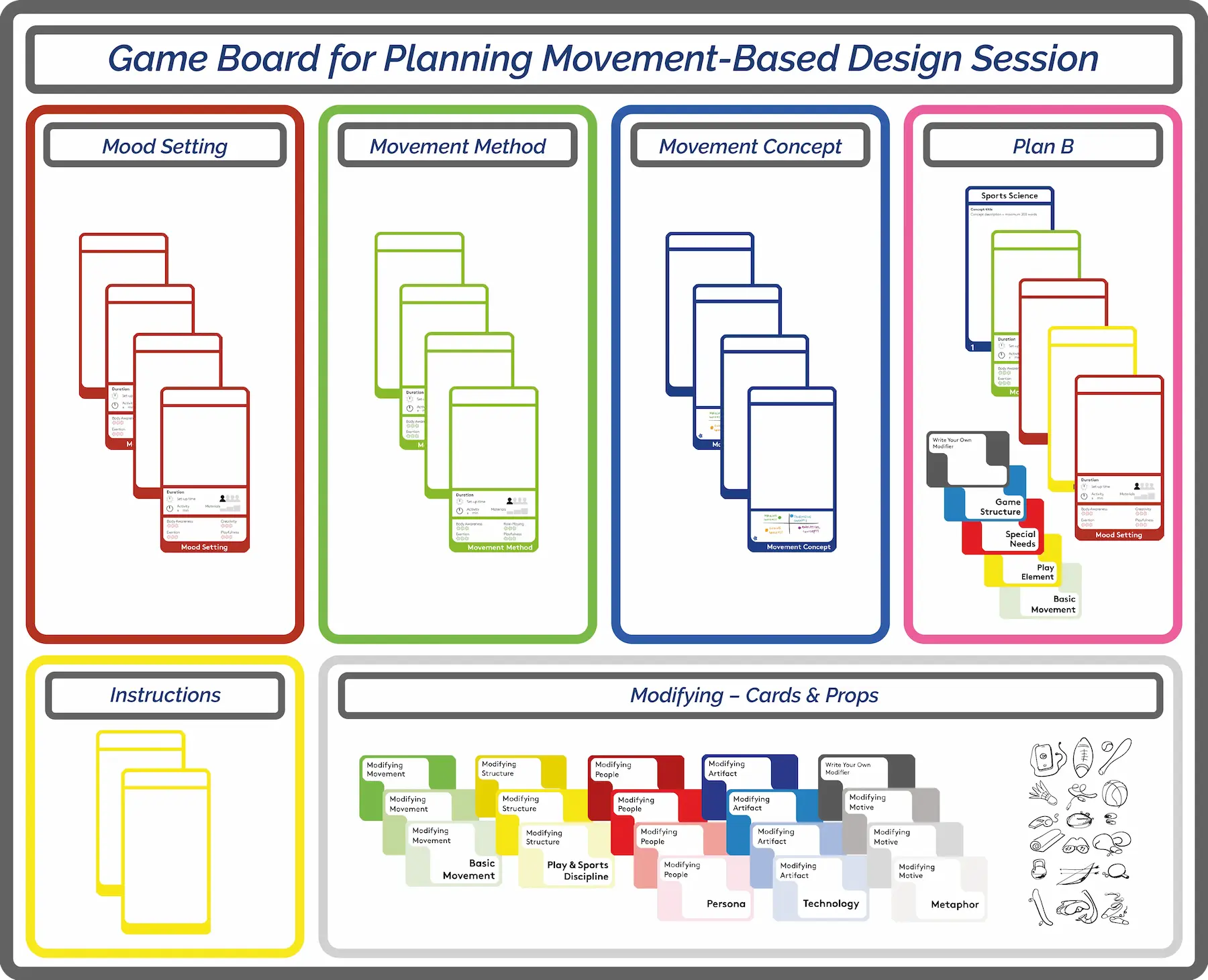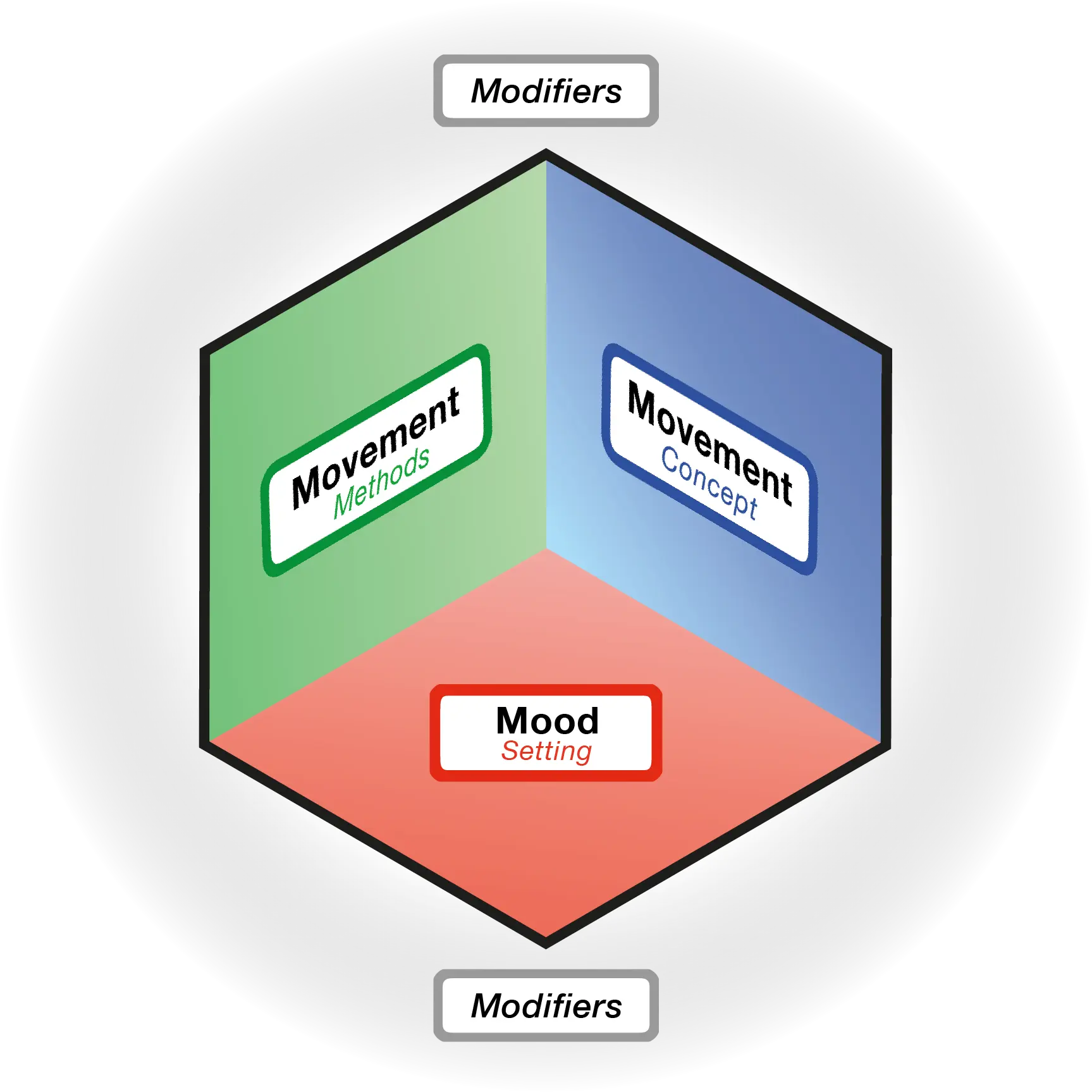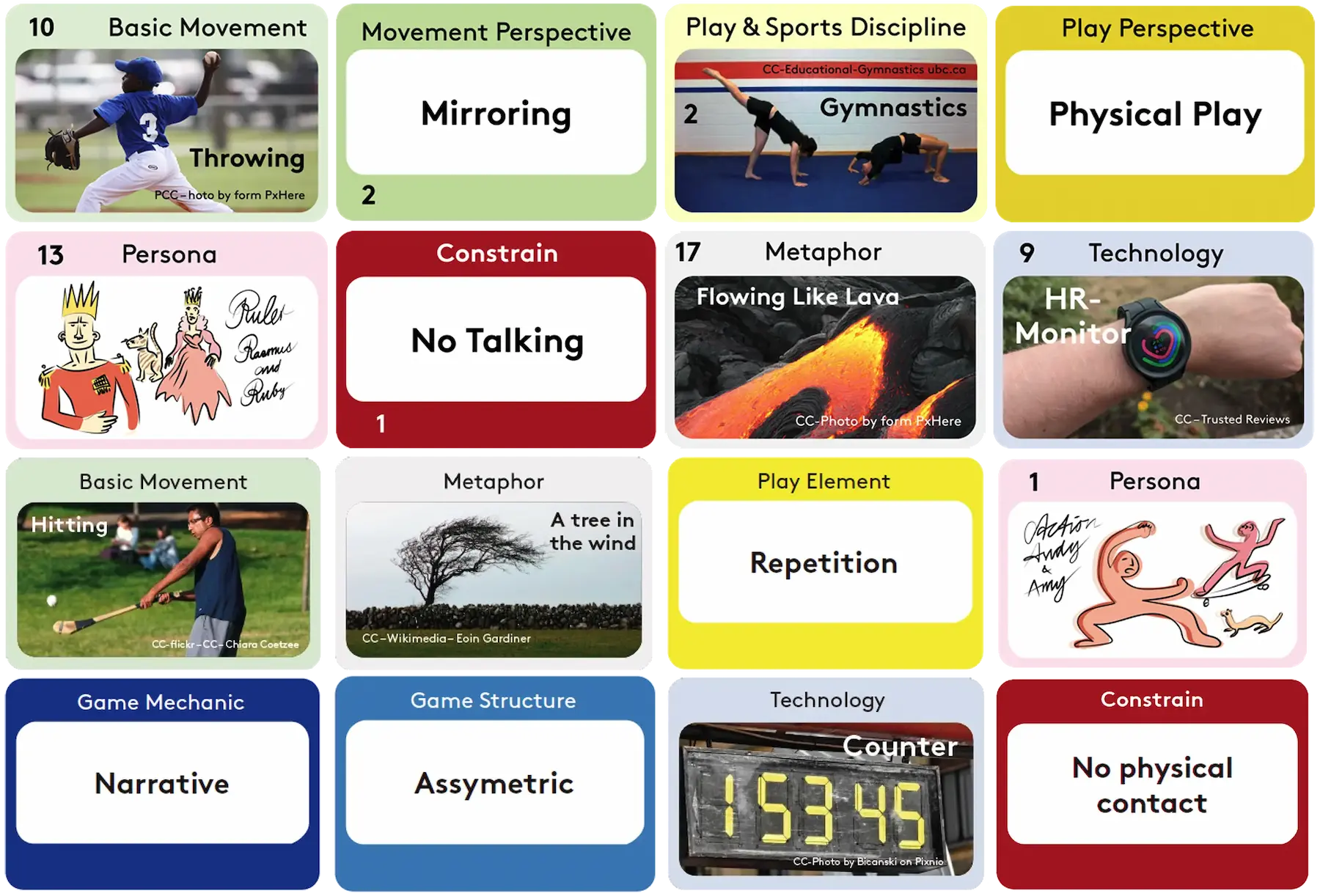Each card features graphics for a better understanding, and the method's outcome, procedure, use notes and variations are stated. The cards can be sorted on factors like the time required, the embodied focus of the method, the number of participants, preparation efforts and the character of the activity.
The method cards are categorised into five types:
- Mood Setters: Activities to set the creative mood for a design session, including icebreakers, warm-ups, and team-building.
- Movement Methods: Design methods for sensitising designers, ideating, evaluating/polishing, or documenting solutions.
- Movement Concepts: Chunks of knowledge from various fields to inform your design solutions.
- Modifiers: Cards to tweak the current design activity or find new perspectives and solutions.
- Instruction Cards: Detailed instructions for the various cards, facilitation guidelines, suggestions for music, physical props, and design flows.
Further, you can create a profile and make your own cards or use the card documentation to modify each card’s content for your specific design session.
When logged in, click the blue write-document at the top right icon line to enter the create card service. Choose the type of card to make (Mood Setting, Movement Method, Movement Concept, Instruction card, or Modifier), fill out the boxes and upload the illustration. You can preview the card or choose to create the card, and afterwards, you can see your cards at the bottom of the various card types. You may also like to share the cards with others, then you send the card for review and editing to our MeCaMInD review board, and after refinement and approval, the card will be published.


At MeCaMInD, we believe in placing human movement at the forefront of design, whether it's wearable technology, home appliances, sports tools, or physical training aids. Our philosophy is that the body is not just a vessel for interaction, but a source of creativity and innovation in its own right. By engaging the body as a source of creativity, we can enrich our interactions with technology, promoting physical activity, health, joy, and enhancing the naturalness of these interactions.
We don't view movement merely as an added feature, but as the core around which the entire design process revolves. By sensitising designers to the nuances of human movement, we aim to foster a deeper understanding of the role of physicality in our interactions with technology. This approach is essential in creating design solutions that are more responsive, intuitive, and ultimately beneficial to users.
By centring on the intricacies of human movement, we are compelled to invent solutions that harmonise with the body's natural rhythms and capabilities and thus enhance the holistic experience of movement. Through our work, we are not only advancing the design of individual products but also redefining the possibilities of movement-inspired design itself.
The MeCaMInD project aspires to build an interdisciplinary network across Europe, embedding movement as a vital component of the design process. This goal extends beyond merely inventing new design products. Instead, we seek to cultivate a new design mindset where movement is integral to creativity. We foresee this innovative approach influencing future technologies, sports concepts, and movement practices, ushering a new era for designers, engineers, and students.
We believe in the power of our movement-based methods to promote well-being and a healthy lifestyle. We envisage designers and engineers creating products and environments that inspire physical activity, bringing joy through movement. Our students are the future ambassadors for this movement-centric philosophy, set to make a lasting impact on society.
The MeCaMInD project represents more than just a convergence of design and sport - it is a catalyst for societal transformation. We aim to inspire educators, policymakers, and citizens to see the value of integrating movement in all facets of life. Our vision extends to how we work, play, and interact, fostering an environment where natural and engaging movement is seamlessly woven into our daily activities.












